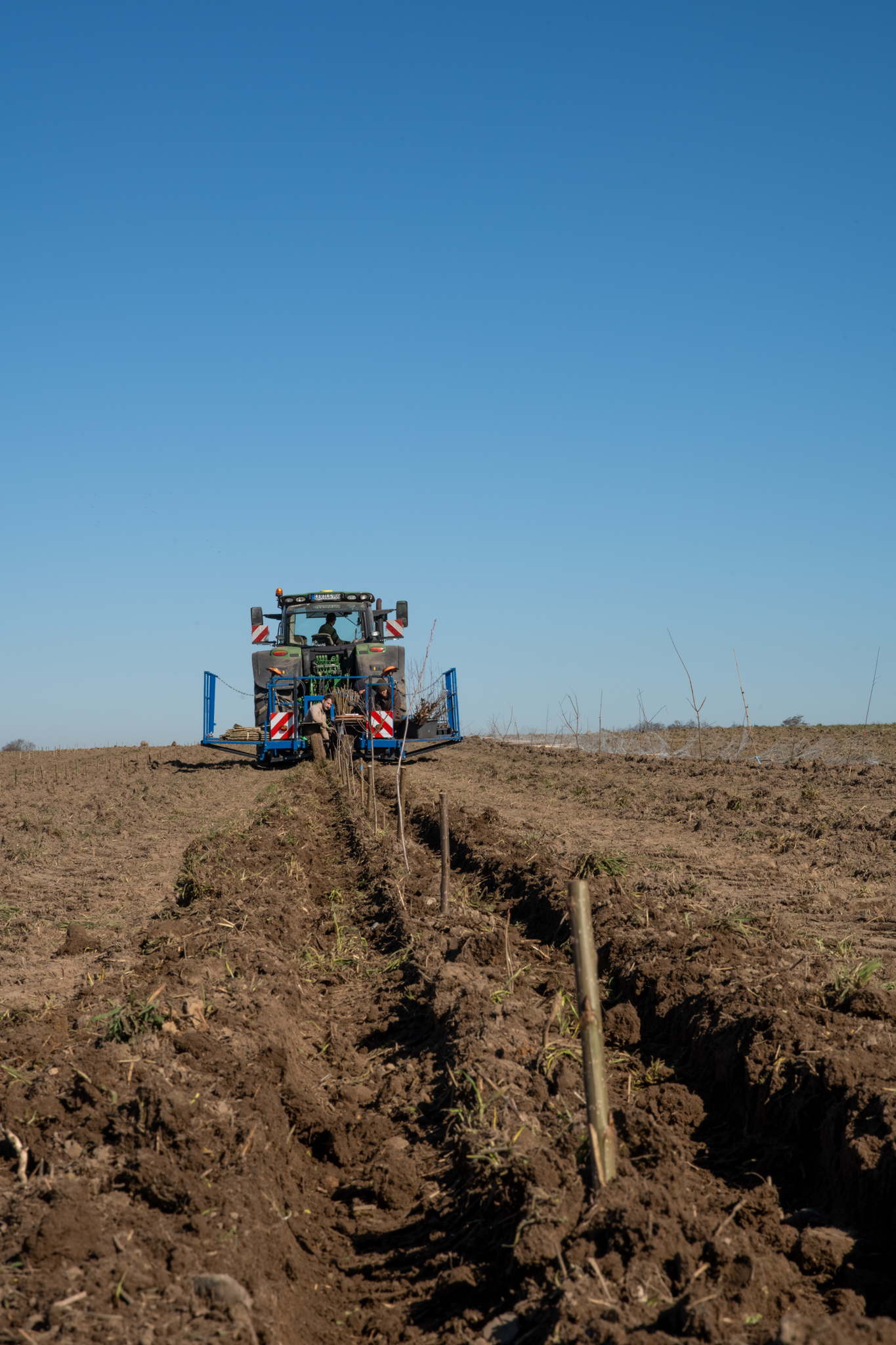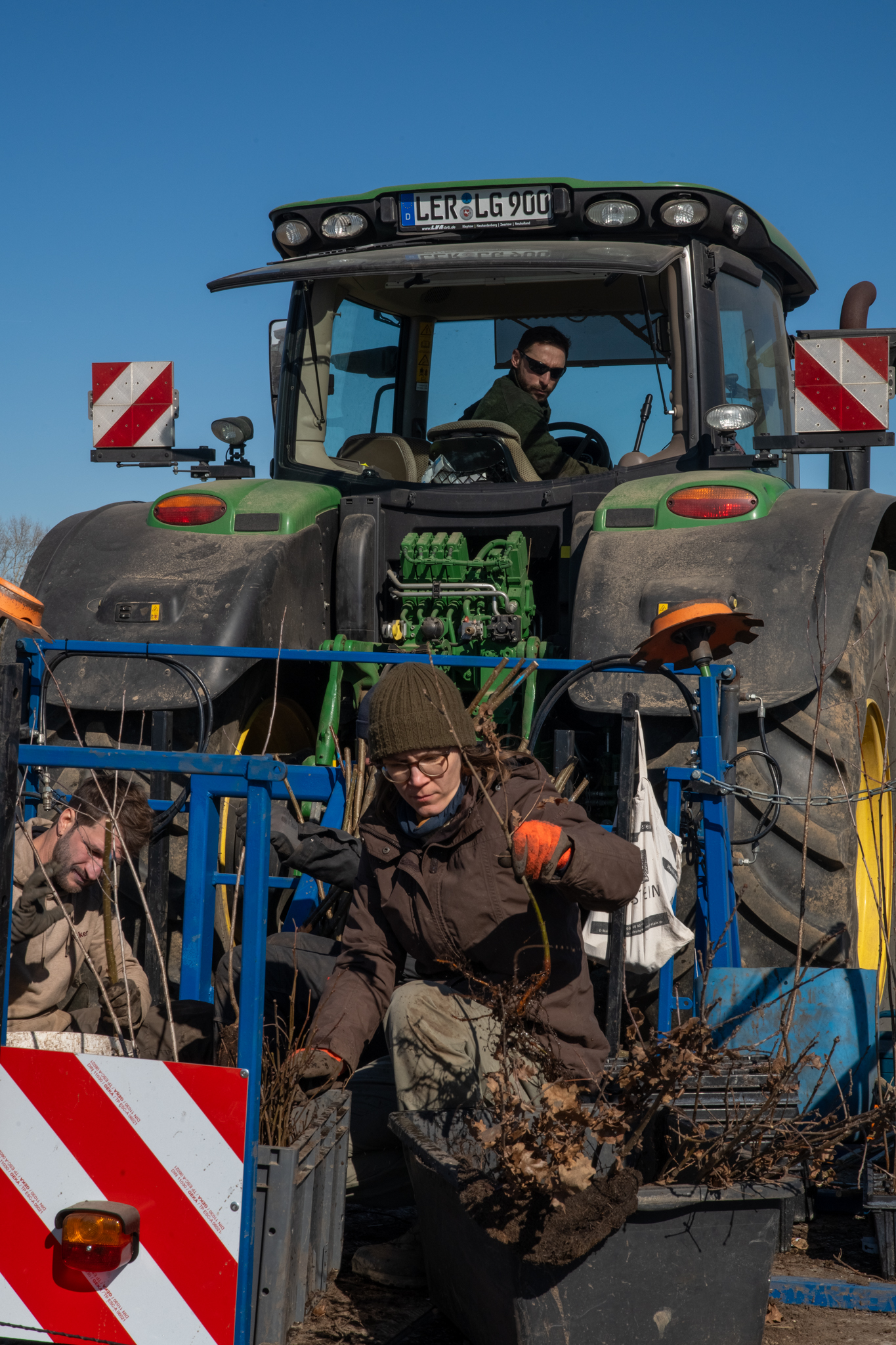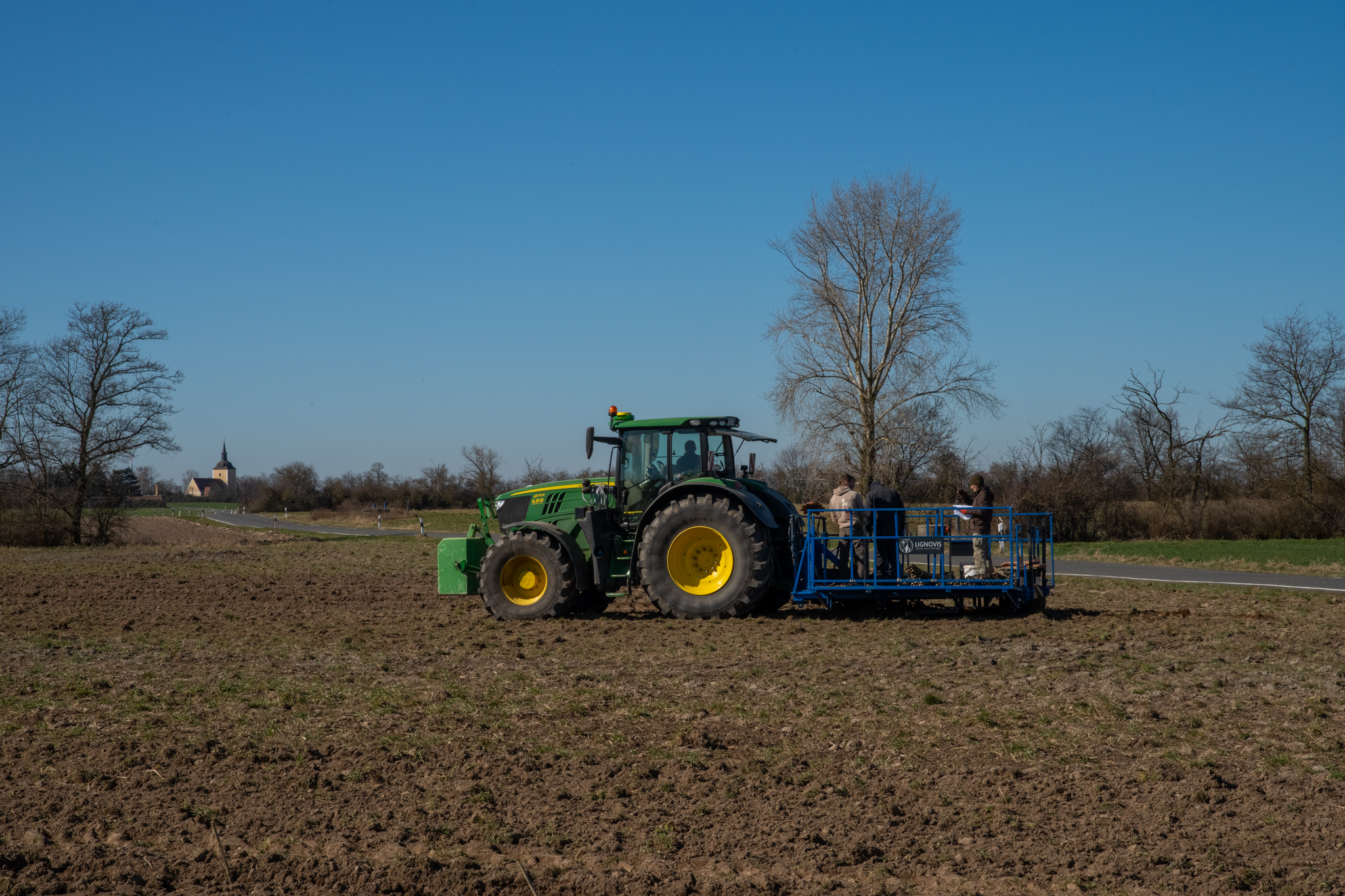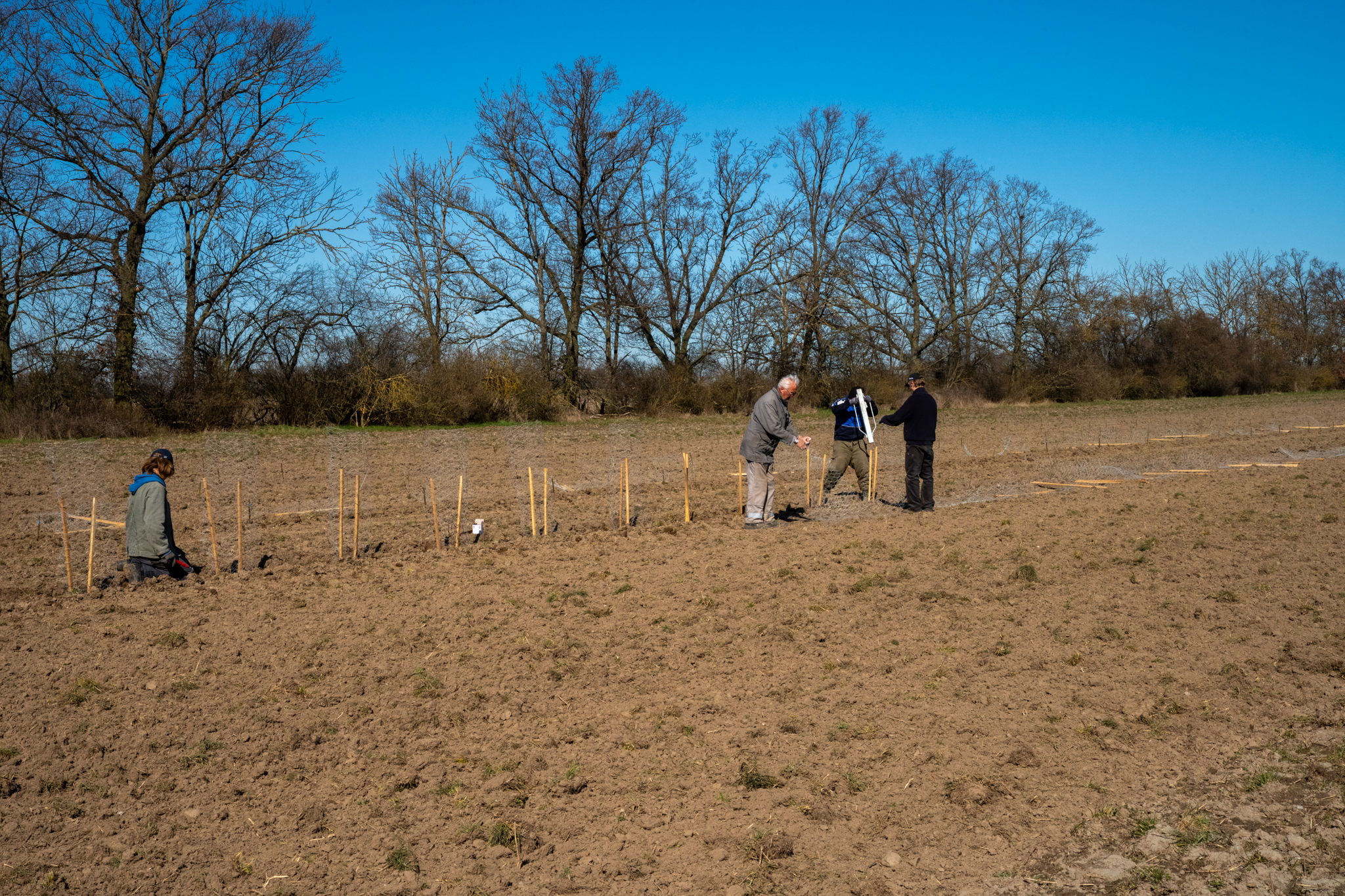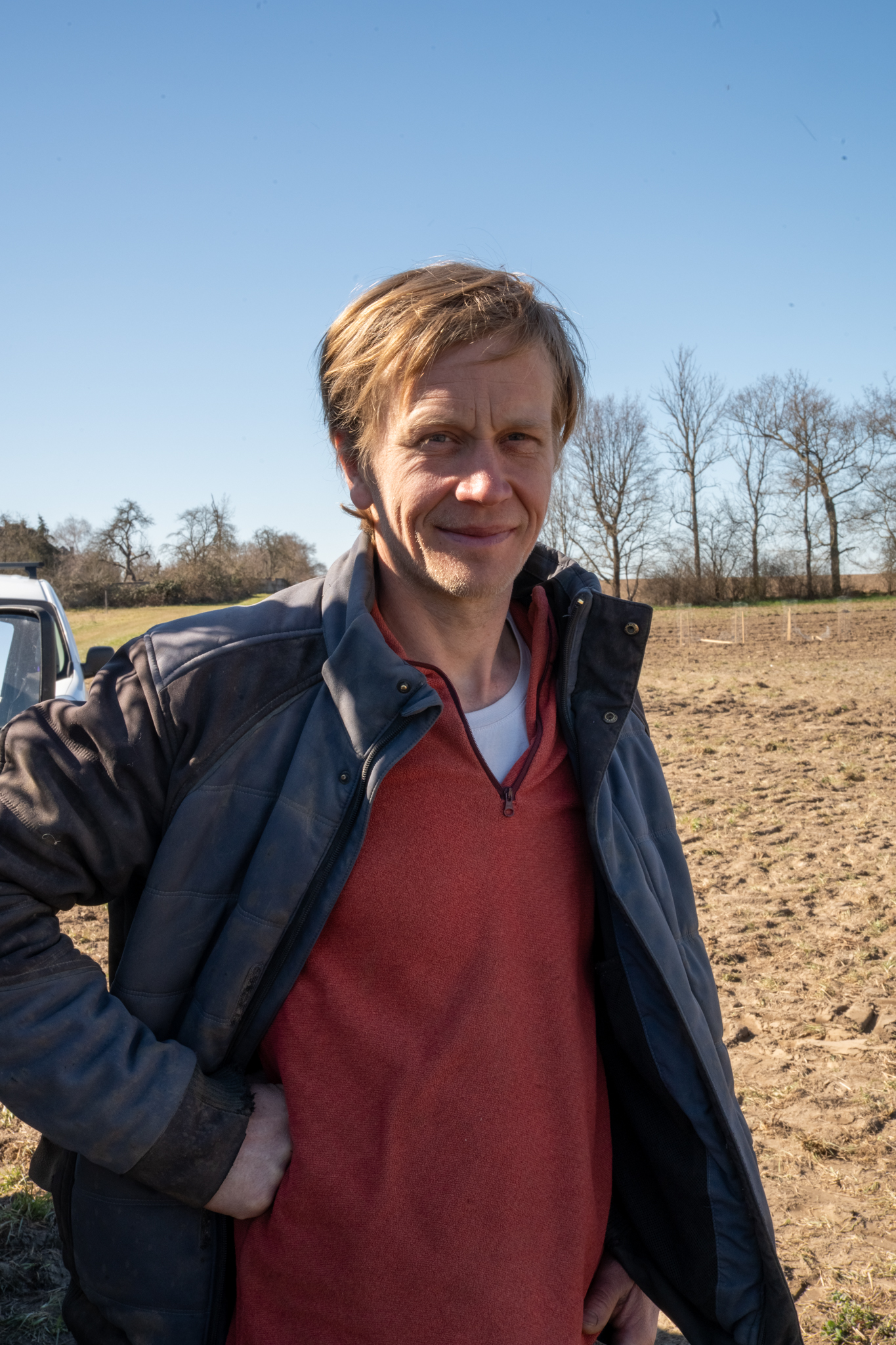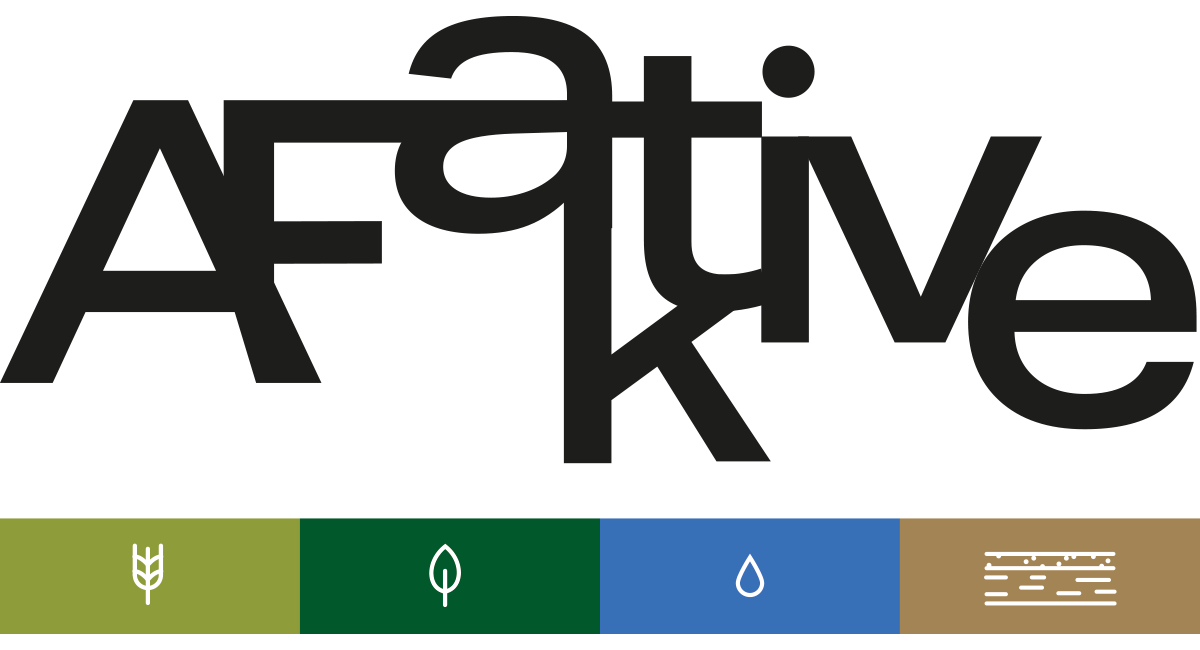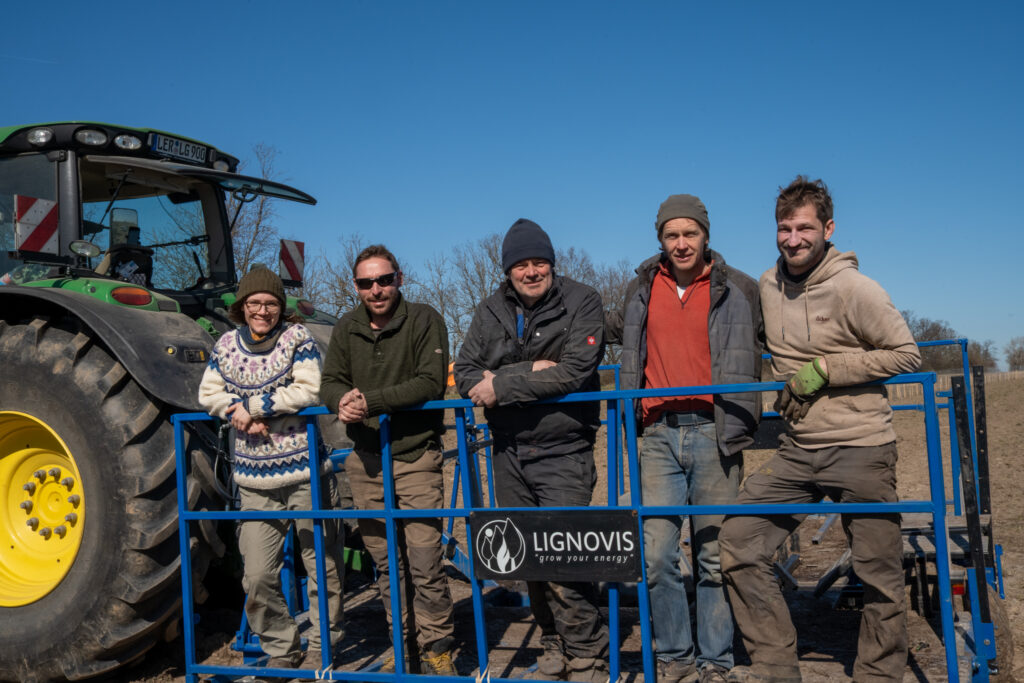
On 17th and 18th March 2025, a new agroforestry system was planted as a demonstration site at the Lerchenhof farm in Jesewitz (Saxony, Germany). This is part of the AFaktive sibling project AGROfloW.
In beautiful sunshine, the LIGNOVIS team, together with organic farmer Robert Künne and parts of the AGROfloW project team (IfaS), planted 3,650 poplars in four varieties, 475 deciduous trees and 640 biodiversity trees.
With 2.6 hectares of woody plants on 8 hectares of arable land, the system emphasises woody plants and, in addition to the production of energy wood, is intended in particular to improve the water balance on the land and contribute to greater biodiversity as well as to biotope connectivity in the landscape.
The three strips running north-south are 18 metres wide and each contain 5 rows of trees. One of these is planted with deciduous trees (wild cherry, small-leaved lime, Norway maple and sessile oak). There is also a row in each of two strips with a diverse mixture of 16 different fruit-bearing and biodiversity shrubs, including cornelian cherry, hazel, goat willow, hawthorn and service tree. The remaining rows are planted with poplars of four different varieties. By staggering the utilisation of the individual components over time, a mosaic of uses is created on the area, which further increases the richness of the edge lines and the diversity of the landscape.
The costs for planting and establishing the agroforestry system amount to around 30,000 euros.
Farmer Robert Künne was very happy to see the system being put into practice and combined the planting directly with the testing of a so-called ‘inoculation compost’ in which the roots of the planting material were immersed. The compost is intended to promote symbiosis so that the plants are optimally supplied with microorganisms and nutrients.
Robert has been consistently developing his organic demo farm for Saxony since 2017. By setting up the Lerchenbergmühle-mill together with Johanna Tschiersch, he combined his primary production with local processing. With the agroforestry system, he is investing in sustainable soil development, wind erosion protection and various ecosystem services. Another building block for good operational and connected rural development. We are delighted to see so much pioneering spirit and are excited to see how the trees develop!
